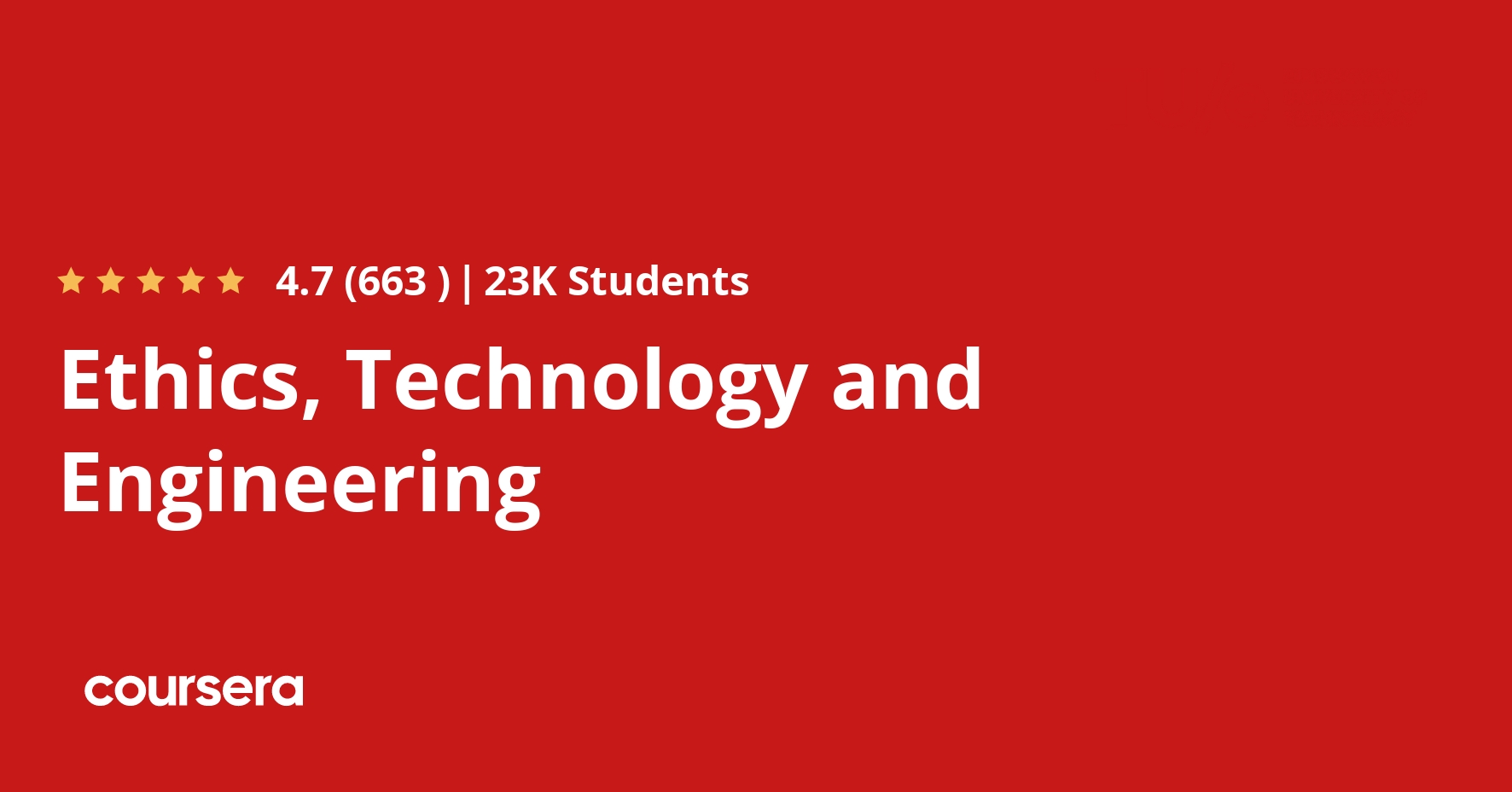Description
There is an increasing attention to ethics in engineering practice. Engineers are supposed not only to carry out their work competently and skilfully, but also to be aware of the broader ethical and social implications of engineering and to be able to reflect on these. According to the Engineering Criteria 2000 of the Accreditation Board for Engineering and Technology (ABET) in the US, engineers must have “an understanding of professional and ethical responsibility” and should “understand the impact of engineering solutions in a global and societal context.”
This course provides an introduction to ethics in engineering and technology. It helps engineers and students in engineering to acquire the competences mentioned in the ABET criteria or comparable criteria formulated in other countries. More specifically, this course helps engineers to acquire the following moral competencies:
– Moral sensibility: the ability to recognize social and ethical issues in engineering;
– Moral analysis skills: the ability to analyse moral problems in terms of facts, values, stakeholders and their interests;
– Moral creativity: the ability to think out different options for action in the light of (conflicting) moral values and the relevant facts;
– Moral judgement skills: the ability to give a moral judgement on the basis of different ethical theories or frameworks including professional ethics and common sense morality;
– Moral decision-making skills: the ability to reflect on different ethical theories and frameworks and to make a decision based on that reflection.
With respect to these competencies, our focus is on the concrete moral problems that engineers encounter in their professional practice. With the help of concrete cases is shown how the decision to develop a technology, as well as the process of design and production, is inherently moral. The attention of the learners is drawn towards the specific moral choices that engineers face. In relation to these concrete choices learners will encounter different reasons for and against certain actions, and they will discover that these reasons can be discussed. In this way, learners become aware of the moral dimensions of technology and acquire the argumentative capacities that are needed in moral debates with stakeholders (e.g. governments, users, and commercial business departments).
What you will learn
Introduction
This module offers a short introduction to the course. The lecture will show a video in which Micaela dos Ramos, executive director of KIVI (the largest professional association of engineers in the Netherlands), illustrates the relevance of ethics for engineers.
The responsibility of engineers
This module discusses the responsibility of engineers. We will investigate what exactly responsibility is, distinguishing between passive responsibility for things that happened in the past and active responsibility for things not yet attained. Furthermore, we will discuss the professional responsibility of engineers, examine the consequences for this responsibility, such as whistle-blowing and the application of the precautionary principle.
Codes of conduct
In this module, we discuss the role of codes of conduct in engineering. In particular, we focus on professional codes as they have been proposed by professional engineering societies and on corporate codes, as they have been formulated by companies. We discuss these two types of codes, their structure and their content, and a number of common objections that have been levelled against codes of conduct. This includes the problem that someone is acting according to the code, but that it may nevertheless lead to dismissal.
Normative ethics
In this module we will discuss some ethical theories that have been developed by various philosophers. Ethical theories help us to sort out our thinking and to develop a coherent and justifiable basis for dealing with moral questions. The role of ethical theories is to provide certain arguments or reasons for a moral judgment. They provide a normative framework for understanding and responding to moral problems, so improving ethical decision-making or, at least, avoiding certain shortcuts, such as neglecting certain relevant features of the problem or just stating an opinion without any justification. In this module we shall therefore introduce three of the most well-known ethical theories: consequentialism, duty ethics and virtue ethics. These theories each have their own criteria with which they determine whether an action is right or wrong. Before we go into these three theories we shall discuss what we mean by morality and ethics, and we shall look into the points of departure of ethics: values, norms, and virtues. These points of departure often recur in ethical theories.
The ethical cycle
Engineers will encounter in their professional life some difficult moral situations. Such situations call for moral judgment, using the tools we have introduced in the preceding modules. However, moral judgment is not a straightforward or linear process in which you simply apply ethical theories to find out what to do. Instead it is a process in which the formulation of the moral problem, the formulation of possible ‘solutions’, and the ethical judging of these solutions go hand in hand. This messy character of moral problems, however, does not rule out a systematic approach. In this module we describe a systematic approach to problem solving that does justice to the complex nature of moral problems and moral judgment: the ethical cycle. Our goal is to provide a structured method of addressing moral problems which helps to guide a sound analysis of these problems.








